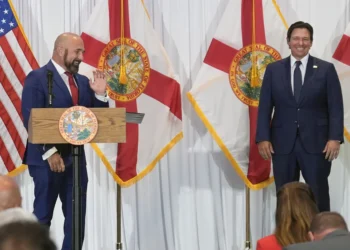In July, the MIT Technology Review reported that the world’s “oldest baby”, Thaddeus Daniel Pierce, had been born after his embryo had been stored in a freezer for over 30 years. Thaddeus’ biological mother, Linda Archerd, had created four embryos in May 1994 amid her own infertility issues. One embryo, Thaddeus’ biological sister, was transferred to Linda’s uterus and born in early 1995. The other three embryos, including Thaddeus, remained in a freezer for the next 30 years.
Not wanting to see her embryos discarded or given for scientific research, Linda reached out to various embryo adoption agencies and eventually connected with the Snowflakes Embryo Adoption program of the Nightlight Christian Adoptions agency. It was through this program, specifically the Open Hearts program for embryos that are difficult to place due to age or other factors, that Lindsey and Tim Pierce, Thaddeus’ adopted parents, were informed about Linda’s embryos. With the help of Rejoice Fertility in Knoxville, Tennessee, the Pierces were able to give Linda’s embryos a chance at life. From Linda’s three remaining embryos, one failed to grow after being thawed and the remaining two were transferred to Lindsey’s uterus on November 14, 2024 — 30 years and 6 months after they were created (when Lindsey and Tim were less than 6 years old) — and one, Thaddeus, developed into a fetus.
This redemptive story comes amid a backdrop of growing ethical concerns about the practice of IVF. The Telegraph has previously reported that in the UK, nearly half of all embryos that are created by IVF – nearly 1.7 million of the 3.5 million created between 1991 and 2012 – were destroyed without being used. Additionally, 5,900 embryos were given for scientific research during that same period.
The use of embryos in scientific research is one of grave moral concern. Currently, the use of human embryos in scientific research is capped at 14 days post-fertilization; however, it has recently been proposed that this limit be extended to 1 month (i.e. one-third of the first trimester).
Other ethical concerns about current developments in IVF include the recent birth of children whose embryos derived from three parents. Not only does this arrangement raise moral and legal concerns about the obligations of these “parents” to their children, the manner in which these embryos were created allows for the DNA from all three parents to be passed to future generations.
Earlier this month, New York Times columnist Ross Douthat interviewed the founder of Orchid, a company that offers whole genome sequencing to identify possible genetic “errors” in embryos created by IVF. For $2,500, Orchid will sequence more than 99% of an embryo’s DNA to screen for risks such as neurodevelopmental disorders and birth defects. Presumably, with this information in hand, the parents of the embryo would then decide whether to transfer the embryo to a uterus or to discard or give the embryo for scientific research.
ALLITERATIVE IMMIGRATION DETENTION CENTERS REFLECT TRUMP’S BRANDING
In the interview, the Orchid’s founder, Noor Siddiqui, says that Orchid has “absolutely zero to do with discard[ing]” embryos and that any decision to discard lies exclusively with parents. She even goes so far as to say that the decision not to implant an embryo after discovering its risk for a disease such as adult-onset blindness is a “positive moral choice.” What should be done with this embryo after making this “positive moral choice,” she fails to say.
It took less than 50 years to go from creating embryos for parents struggling with infertility to screening embryos for desirable genetic traits and discarding those without them. It is difficult to imagine where the road to having a baby by any means necessary will lead us. However, the stories of couples such as Lindsey and Tim Pierce and organizations such as Nightlight Christian Adoptions give us hope that, despite the moral harms that have already been done by IVF, it may still be redeemed.
William Mills is a professor of biology at Mount St. Mary’s University in Emmitsburg, Maryland















